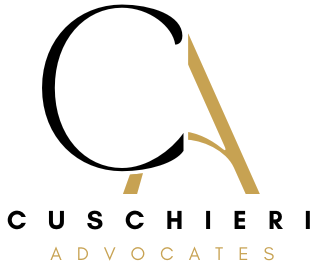Malta’s Whistleblower Protection Act: Key Considerations for Employers and Employees
The Protection of the Whistleblower Act (Chapter 527 of the Laws of Malta) aims to safeguard individuals who report wrongdoing within their organization, promoting transparency and accountability. This article explores the key provisions of the law, its implications for employers and employees, and practical advice for compliance.
What is Whistleblowing?
Whistleblowing involves reporting suspected illegal or unethical activities within an organization. These may include:
- Fraud or financial irregularities
- Breaches of safety regulations
- Corruption or abuse of power
- Violations of environmental laws
The Maltese Whistleblower Protection Act encourages individuals to disclose such misconduct by offering legal protection against retaliation.
Scope of the Act
The Act applies to both the private and public sectors, provided the organization within the private sector employs more than 50 employees. The law also covers government departments and public entities, extending protection to employees, trainees, and even contractors who report misconduct.
Employer Obligations
Under the Act, employers must establish internal reporting channels that ensure confidentiality and transparency. Key requirements include:
- Designated Officer: Employers must appoint a whistleblowing reporting officer to handle disclosures.
- Confidentiality: Protect the whistleblower’s identity at all stages.
- Non-Retaliation Policy: Employers are prohibited from taking punitive actions such as dismissal, demotion, or discrimination against whistleblowers.
- Record-Keeping: Maintain detailed records of all whistleblowing reports and their resolutions.
Failure to comply may result in administrative penalties or legal repercussions.
Employee Protections
Employees who report in good faith are entitled to protection against retaliation. The Act also allows whistleblowers to report directly to designated external authorities if:
- Internal reporting channels are ineffective or absent.
- The whistleblower has reasonable grounds to believe that the misconduct cannot be effectively addressed internally.
How to File a Whistleblower Report?
Whistleblowers can disclose information through:
- Internal Reporting: Through the designated officer or channels within the organization.
- External Reporting: To authorities such as the Ombudsman, Permanent Commission Against Corruption, or regulatory bodies.
- Public Disclosure: In exceptional cases, when reporting to authorities poses a risk or is unlikely to result in effective action.
Challenges and Best Practices
Challenges:
- Fear of retaliation despite legal protections.
- Ensuring confidentiality in small organizations.
- Balancing transparency with organizational loyalty.
Best Practices:
- Employers should foster a culture of openness and trust.
- Conduct regular training on whistleblowing policies and procedures.
- Establish clear, accessible, and user-friendly reporting mechanisms.
The Importance of Legal Advice
Both whistleblowers and employers may benefit from consulting legal professionals to understand their rights and obligations under the Act. Proper legal guidance ensures that reporting is done responsibly and that employers remain compliant with the law.
Conclusion
Malta’s Whistleblower Protection Act underscores the importance of accountability and ethical practices in the workplace. By fostering a culture of transparency and compliance, employers and employees can collectively ensure a safer and more ethical working environment.







